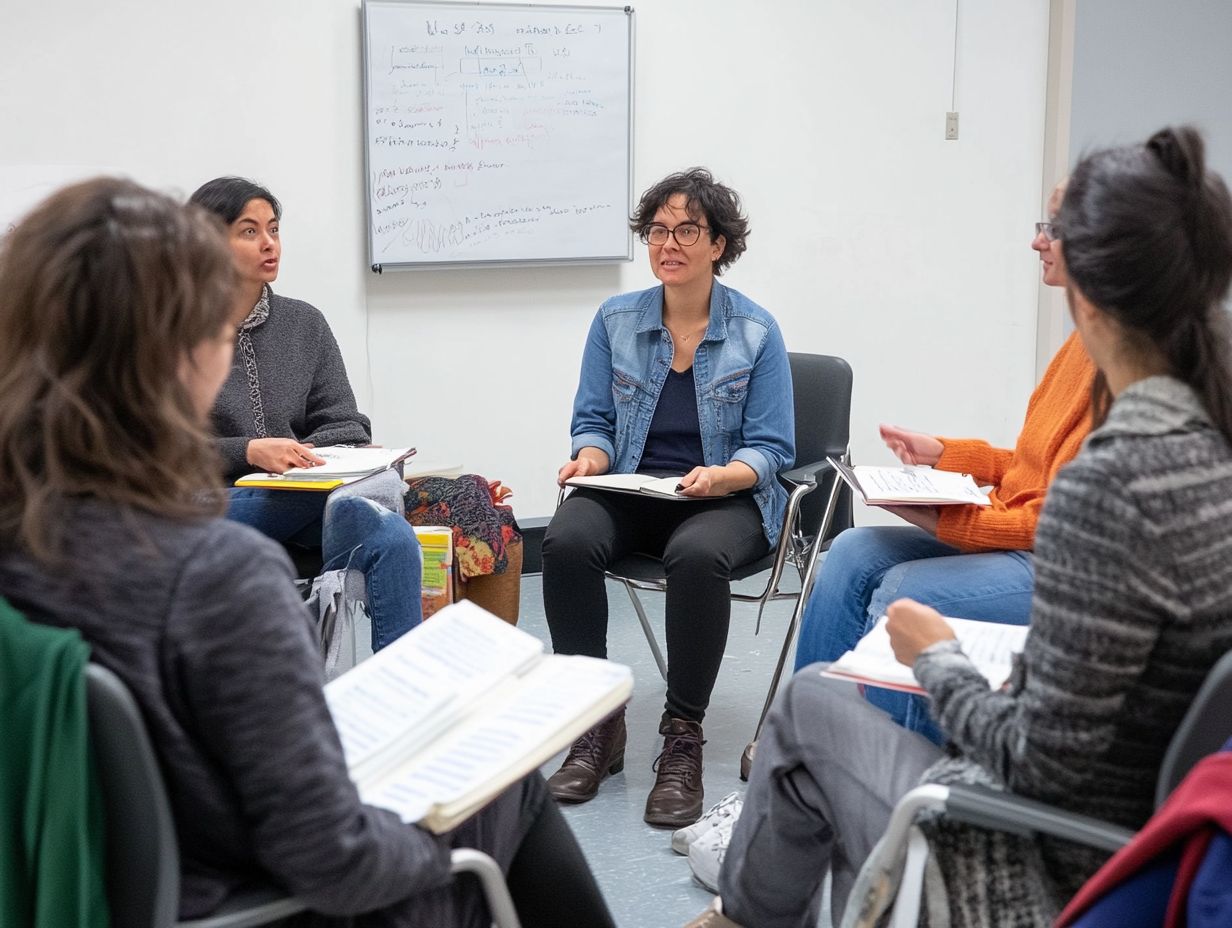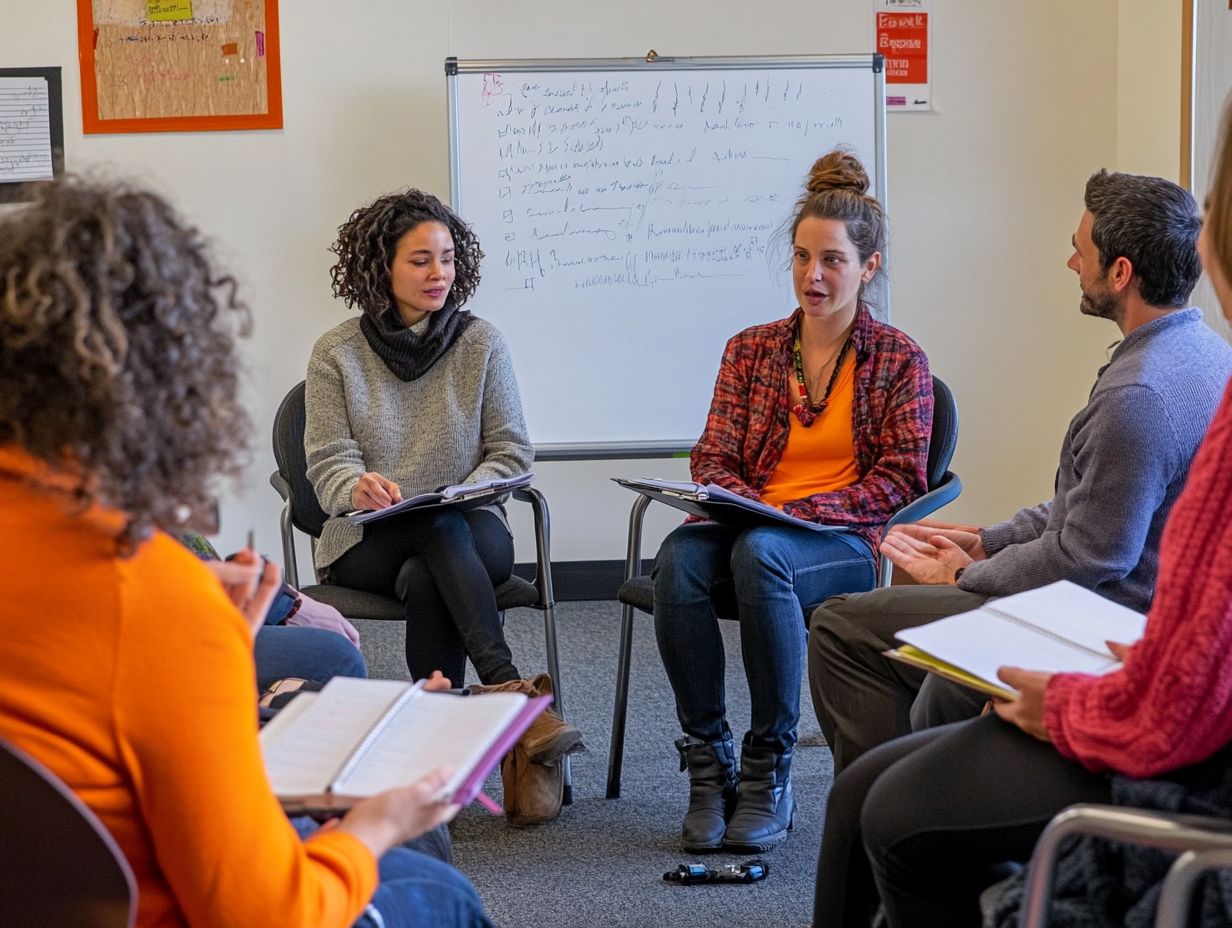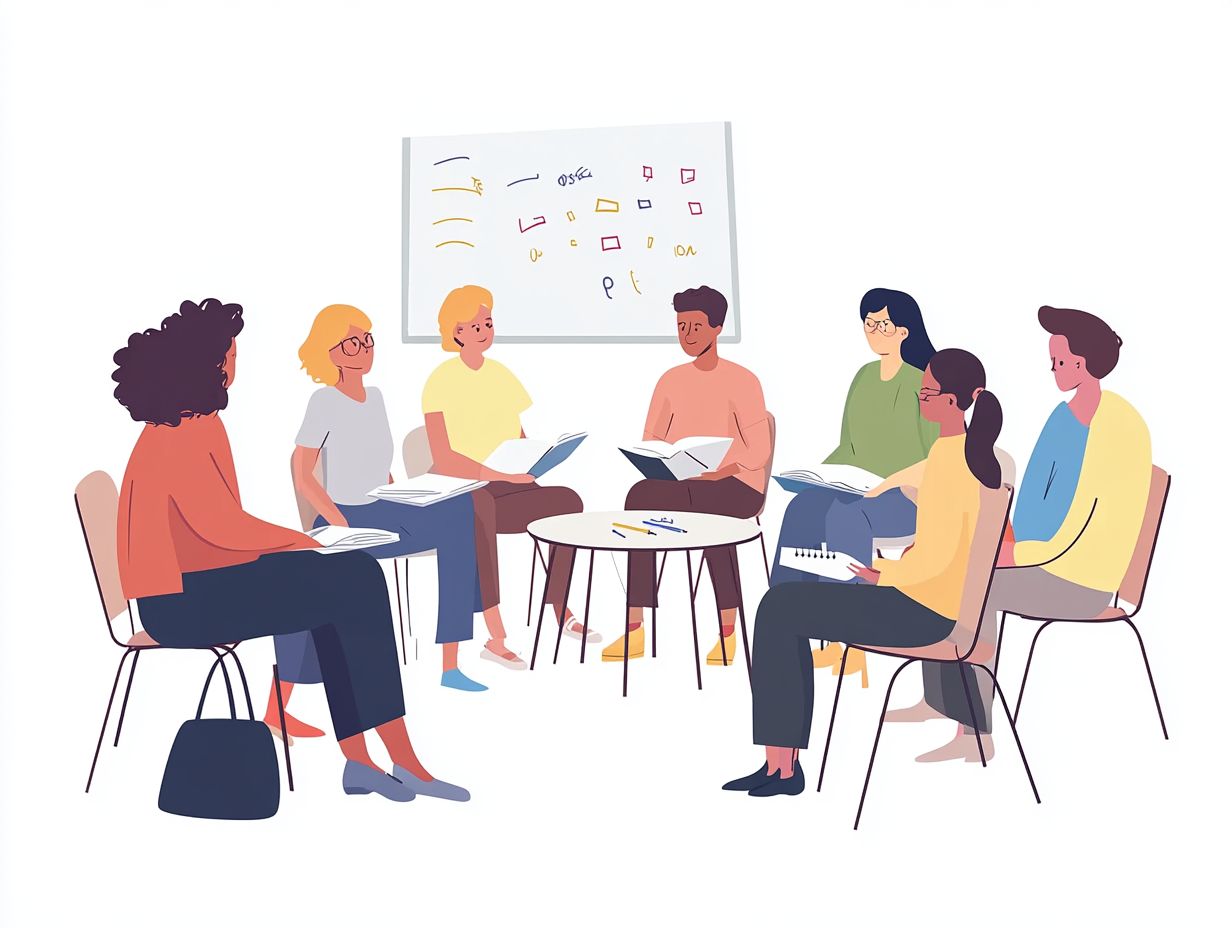How to Practice Speaking a New Language
Learning a new language can truly open doors to a wealth of exciting personal and professional opportunities, enriching your life in ways you may not have imagined.
This article delves into the myriad benefits of language acquisition and highlights essential factors to consider when selecting a language. You ll uncover effective methods for practicing speaking, from immersive experiences to leveraging online resources.
You will find valuable tips for creating a study plan and avoiding common pitfalls. Engaging with native speakers and weaving language practice into your daily routine will significantly elevate your skills.
Ready to dive into an exciting journey of language learning? Let s jump in!
Contents
- Key Takeaways:
- Benefits of Speaking a New Language
- Choosing a Language to Learn
- Methods of Practicing Speaking
- Creating a Study Plan
- Mistakes to Avoid While Speaking
- Practicing with Native Speakers
- Incorporating Speaking Practice into Daily Life
- Frequently Asked Questions
- What are some effective ways to practice speaking a new language?
- How important is a consistent practice routine when learning a new language?
- What are some common challenges when practicing speaking a new language?
- How can I overcome the fear of speaking a new language?
- Is it important to practice speaking a new language even if I am not in a country where it is spoken?
- How can I track my progress when practicing speaking a new language?
Key Takeaways:

- Learning a new language opens doors to exciting job prospects, enhancing communication skills and career opportunities.
- When choosing a language to learn, consider your interests, goals, and the practicality of the language.
- Incorporate immersion techniques, online resources and tools, and a structured study plan to effectively practice speaking a new language.
Benefits of Speaking a New Language
Embracing a new language presents a wealth of benefits for your personal and professional growth. It enhances your communication skills and sharpens your cognitive abilities.
As you immerse yourself in a different tongue, you not only elevate your language proficiency but also expand your worldview. You gain insights into diverse perspectives and traditions. This dual advantage personal enrichment coupled with career advancement holds particular significance in today s interconnected global landscape, where multilingualism (the ability to speak multiple languages) is increasingly prized.
Moreover, participating in language exchanges (structured interactions between language learners) cultivates social interaction and fosters community engagement, transforming your learning journey into a fulfilling experience.
Advantages for Personal and Professional Growth
Learning a new language can greatly boost your personal and professional growth. It enables you to communicate effectively and paves the way to achieve your fluency goals.
This achievement not only unlocks a multitude of job opportunities across diverse industries but also enhances your ability to forge meaningful connections with individuals from various cultures.
By embracing strategies such as setting achievable learning milestones, utilizing online platforms, and engaging with language exchange communities, you can develop your skills at your own pace.
Leveraging educational technology like language apps, podcasts, and interactive courses can elevate your learning experience, fostering consistency and motivation.
As you expand your linguistic repertoire, you ll discover new avenues for networking, leading to fruitful collaborations and enduring relationships in both your personal and professional life.
Choosing a Language to Learn
Selecting a language to learn requires careful thought about several key factors. Consider your personal experiences, aspirations, and the cultural significance that language holds.
Factors to Consider
When choosing a language to learn, it’s crucial to consider cultural experiences, personal goals, and the resources available to you. Your career trajectory plays a significant role in this decision, as certain languages can unlock new job opportunities or enhance your professional skills in specific industries.
For example, if you re pursuing a career in international relations, learning Arabic or Mandarin could prove to be particularly beneficial. Personal connections, such as your family heritage or travel experiences, often ignite an interest in a language, making the learning journey more meaningful and engaging.
Platforms like Duolingo offer interactive lessons that can keep you motivated, while LingQ provides a treasure trove of reading materials and podcasts. These resources allow you to immerse yourself in your chosen language, no matter your background or motivations.
Methods of Practicing Speaking

To truly master a new language, immerse yourself in the experience. Engage in interactive learning techniques and leverage a variety of online resources.
These approaches will significantly enhance your fluency, or the ability to speak smoothly and easily, making the journey both enjoyable and effective.
Immersion Techniques
Immersion techniques are very helpful methods for language learners. They allow you to absorb and practice the language in real-life contexts.
Engaging in activities like watching movies and tuning into podcasts can significantly boost your auditory comprehension.
When you watch a film in your target language, it provides visual context and enhances your vocabulary as you hear words used in everyday conversation.
Diving into relevant podcasts offers a delightful way to sharpen your listening skills while gaining a better grasp of various accents and dialects.
By weaving these immersive experiences into your daily routine, you set yourself on a rewarding path to mastering a new language.
Online Resources and Tools
Utilizing various online tools and videos can significantly elevate your language learning experience.
Platforms like Duolingo and iTalki offer structured learning paths that guide you through essential vocabulary and grammar concepts at your own pace, ensuring you never feel rushed.
With interactive lessons and personalized feedback from native speakers, these tools make the learning process engaging and highly effective.
The wealth of educational content available on YouTube provides diverse approaches to mastering pronunciation and gaining cultural insights that enrich your understanding.
Language forums create supportive communities where you can ask questions and share resources, making it easier to build your vocabulary and internalize grammar rules.
Creating a Study Plan
A structured study plan can unlock your potential as a language learner. It allows you to set clear goals and maintain motivation throughout your language acquisition journey.
Setting Goals and Staying Motivated
Setting clear goals and maintaining motivation are crucial elements of your successful language learning journey. They guide you toward your speaking aspirations and encourage consistent daily practice.
To navigate this journey effectively, break down your overall language mastery into achievable short-term and long-term objectives.
Your short-term goals might include:
- Mastering a specific number of vocabulary words each week
- Engaging in conversation at least three times a month
Your long-term objectives could focus on:
- Achieving fluency
- Passing a language proficiency test
Staying motivated can be enhanced by exploring community activities, such as language exchange meetups or classes, where you can connect with others who share your passion. Finding a language partner adds accountability, making practice enjoyable and less intimidating.
Mistakes to Avoid While Speaking

As a language learner, you may frequently encounter common errors while speaking. These missteps can impede your language proficiency and impact your pronunciation practice during conversations.
Common Errors and How to Overcome Them
Understanding common errors in language acquisition is crucial for learners aiming for effective communication and mastery of grammar rules.
These errors often arise from a lack of practice or familiarity with the intricacies of a new language, highlighting the importance of immersive experiences. You might struggle with changing verb forms or prepositions, which can lead to confusion in conversations.
To tackle these challenges, engage with native speakers for invaluable insights and real-time corrections that help you navigate language subtleties.
Online tutorials are also excellent resources, allowing you to learn at your own pace while incorporating feedback mechanisms to track your progress. Emphasizing constructive criticism from peers or instructors fosters deeper understanding and encourages continuous improvement, making your language journey more rewarding.
Practicing with Native Speakers
Talking with native speakers is a fantastic way to boost your language skills. It sharpens your speaking skills and immerses you in rich cultural experiences that deepen your understanding of the language.
Benefits and Tips for Finding Conversation Partners
Finding conversation partners is essential for language learners. These interactions offer invaluable opportunities for learning by talking and are key to achieving your speaking goals.
These exchanges enhance your language proficiency and promote cultural exchange, enriching your overall learning experience. To secure conversation partners, consider joining language exchange communities, both online and in person.
Platforms like Tandem or HelloTalk are tailored for language practice and connect you with native speakers. Attending local meetups or conversation clubs can also facilitate face-to-face practice.
Approach these exchanges with an open mind. The mutual learning can significantly boost your comprehension and confidence, benefiting both you and your conversation partner.
Incorporating Speaking Practice into Daily Life
Incorporating speaking practice into your daily life is essential for language learners. It allows you to engage in informal practice, significantly enhancing your social interaction skills, and utilizing resources like tips for daily practice can further support your progress.
Embracing these opportunities boosts your confidence and deepens your understanding of the language in real-world contexts.
Ways to Practice Speaking in Everyday Situations

There are countless chances for you to practice speaking in everyday situations, enhancing your language skills through practical applications and social interactions.
For example, when you order food at a restaurant, engage with the staff to clarify your choices and preferences, which helps build your confidence. Similarly, starting casual conversations with friends or colleagues about daily events creates a comfortable atmosphere to practice new vocabulary.
Participating in community forums, whether in-person or online, offers a platform to express your opinions and share experiences while honing your articulation.
These interactions reinforce your language skills and cultivate a sense of community and belonging, making your learning journey enjoyable and effective.
Frequently Asked Questions
What are some effective ways to practice speaking a new language?
- Find a language partner or conversation group to practice with regularly.
- Utilize language learning apps or online resources that offer speaking practice exercises.
- Join a language class or immersion program where you can practice speaking with others in a structured setting.
- Record yourself speaking and listen back for areas to improve.
- Engage in real-life situations, such as ordering food at a restaurant or asking for directions, in your target language.
- Watch movies or TV shows in the language and try to mimic the dialogue.
How important is a consistent practice routine when learning a new language?
Consistency is key when learning any new skill, including a new language. It is essential to practice speaking regularly to improve and retain your skills. For those looking to enhance their pronunciation, incorporating tips for improving your accent in a new language can be incredibly beneficial. Set aside a specific time each day to practice, even if it’s just for a few minutes. This will help you form a habit and make steady progress in your language learning journey.
What are some common challenges when practicing speaking a new language?
- Fear of making mistakes or being judged by others.
- Limited vocabulary and difficulty finding the right words to express oneself.
- Struggling with pronunciation and accent.
- Lack of opportunity to practice with native speakers (people who speak the language as their first language).
- Difficulty understanding and keeping up with fast-paced conversations.
- Losing motivation and feeling discouraged when progress is slow.
How can I overcome the fear of speaking a new language?
- Remember that making mistakes is a natural part of the learning process and should be accepted.
- Surround yourself with supportive and encouraging language partners or teachers.
- Practice speaking in a low-pressure setting, such as with a tutor or in a conversation group.
- Remind yourself of your goals and the benefits of learning a new language.
- Celebrate small victories and progress made in your speaking skills.
- Stay positive and be kind to yourself during this journey!
Is it important to practice speaking a new language even if I am not in a country where it is spoken?
Yes, it is still important to practice speaking a new language even if you are not in a country where it is spoken. With advancements in technology, there are many ways to practice speaking from the comfort of your own home. Practicing speaking regularly helps you stay motivated and make the most of your learning opportunities when you do have the chance to visit a country where the language is spoken.
How can I track my progress when practicing speaking a new language?
- Set specific goals for your speaking skills and track your progress towards them.
- Record yourself speaking at different intervals and compare to see improvements.
- Use language learning apps or online tools that offer progress tracking features.
- Get feedback from language partners or teachers on areas you have improved in and areas to focus on.
- Celebrate milestones and achievements in your language learning journey.
Start speaking today! Every word counts on your journey to fluency.



